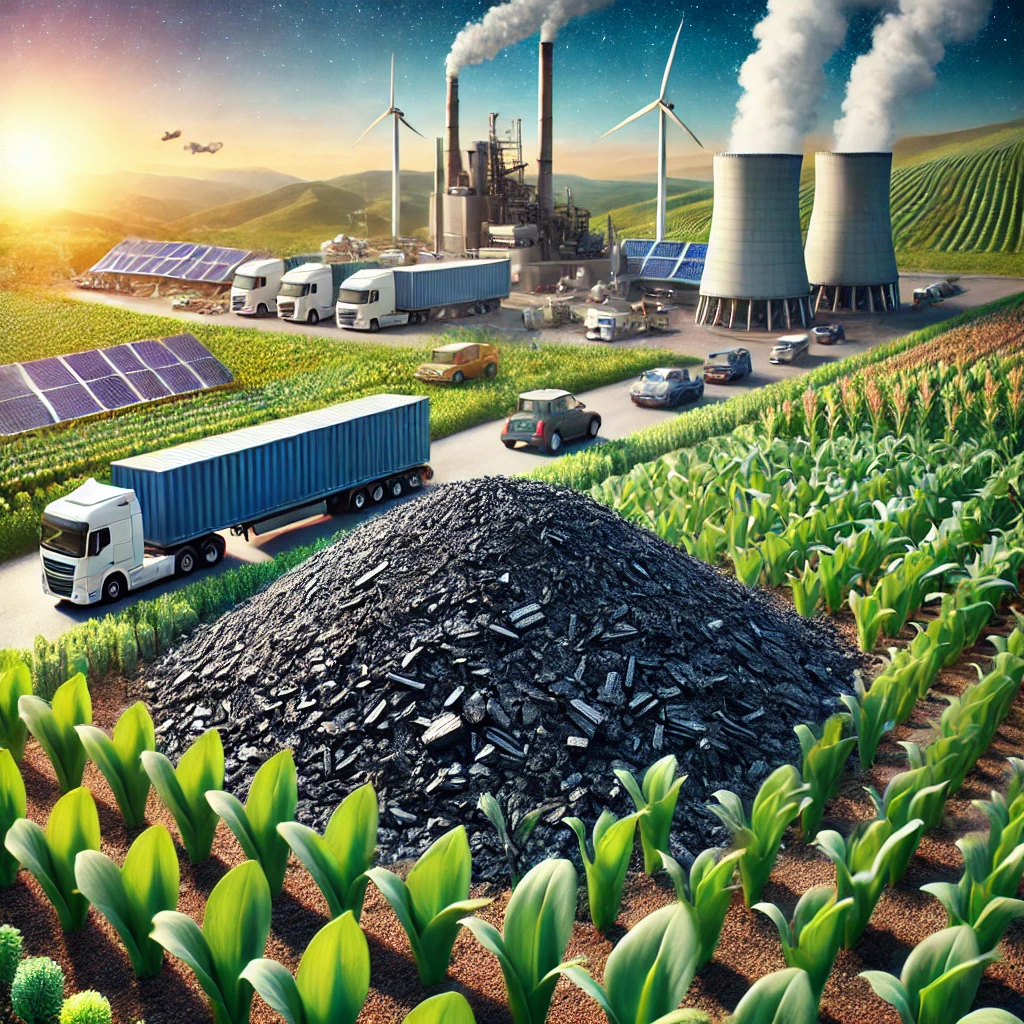
Biochar: A Business opportunity for Green Logistics
Sustainable logistics is taking a central role in business strategies aimed at reducing environmental impact and improving operational efficiency. In this context, an emerging solution gaining attention is biochar, a carbonaceous material obtained from the pyrolysis of biomass. This product, in addition to being a valuable ally in agriculture and waste management, offers intriguing opportunities for more sustainable logistics.
What is Biochar?
Biochar is a type of charcoal produced by heating organic residues (such as agricultural waste, wood, and biomass) in the absence of oxygen. This process not only prevents the release of greenhouse gases linked to decomposition but also captures atmospheric carbon within its solid structure. Thus, biochar is not only a solution for improving agricultural soils but also a tool for decarbonization.
How Can Biochar contribute to Sustainable Logistics?
REDUCING THE CARBON FOOTPRINT IN THE SUPPLY CHAIN:
Businesses can use biochar to offset CO₂ emissions generated along the logistics chain. With its capacity to sequester carbon over the long term, biochar serves as an effective tool to neutralize emissions from transportation and warehouse operations.
INNOVATIVE PACKAGING MATERIALS:
Biochar can be integrated into biodegradable packaging materials, enhancing their durability and sustainability. This could reduce plastic waste and the ecological footprint of traditional packaging.
WASTE OPTIMIZATION AND RECYCLING:
In distribution centers, organic waste can be converted into biochar using pyrolysis plants, lowering disposal costs and creating a valuable product for other industries.
SOIL TREATMENT AND STABILIZATION:
In warehouses or logistics hubs requiring large outdoor storage areas, biochar can improve soil stability, mitigating issues like erosion and soil degradation.
Challenges and Opportunities
Despite its advantages, large-scale adoption of biochar in logistics faces challenges, such as initial production costs and the need for dedicated pyrolysis infrastructure. However, with government incentives and growing interest in circular economy models, biochar is emerging as a promising solution. Integrating biochar into sustainable logistics is not just about reducing environmental impact but also about innovating how we manage resources and waste. This multifunctional material could become a key component for companies aiming to align with higher sustainability standards, contributing effectively to the fight against climate change.Investing in biochar is a step forward toward a greener future, where logistics is not just a cost but also an opportunity to create environmental value.




